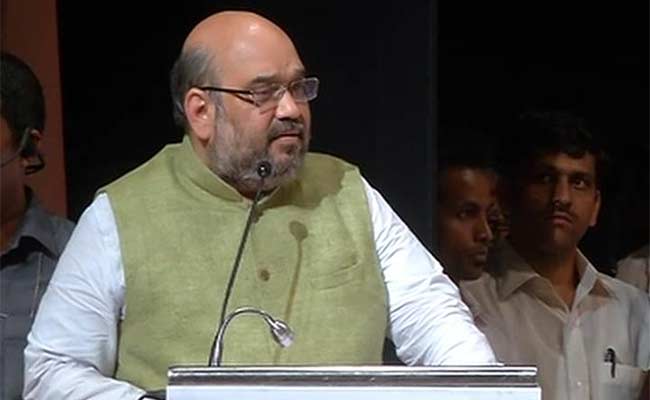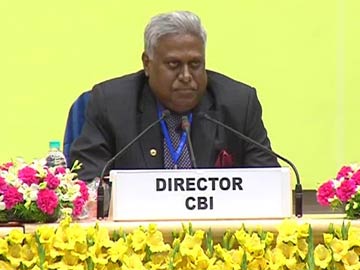
Based on about an hour with these new gadgets at a Samsung event in New York, I find them impressive. But whether that's enough to win over potential iPhone customers will depend on what app developers do with these new features.
There's speculation Apple will unveil the iPhone 6 in two sizes next week, with the larger one at 5.5 inches. If that's the case, Samsung loses much of its size advantage and will have to make a compelling case for these other features.
Galaxy Note phones
Samsung's Galaxy Note phones have always been too big for me, but I know some people prefer larger screens because text is easier to read and video is easier to watch.
The new Galaxy Note 4 is a successor to last year's Note 3 and retains its 5.7-inch screen. The Galaxy Note Edge's screen is 5.6 inches and extends over the right edge and curves toward the back, creating a second display on the side.
The side display is my favorite of the new phone features. It can show weather and time while the phone is laid on a table or nightstand. You can add icons for quick access to apps you use frequently, such as Gmail or Netflix. You also get a panel of tools such as the flashlight. This panel is something Apple's iPhone have had for a year, and I'm glad to finally see it on an Android phone.
But it's too early to tell whether this side screen will ultimately be essential or merely a gimmick. Seeing weather and time on the side while in bed is neat, but I could simply grab the phone and check the home screen. I do that all the time when texts come in and the alarm clock rings.
 It will take app developers - at Samsung and
elsewhere - to invent new uses for that side screen. Their willingness
to spend time on that could depend on how many people buy Edge phones,
and how many people buy Edge phones could depend on what app developers
do with it. See the quandary?
It will take app developers - at Samsung and
elsewhere - to invent new uses for that side screen. Their willingness
to spend time on that could depend on how many people buy Edge phones,
and how many people buy Edge phones could depend on what app developers
do with it. See the quandary?Both phones have 16-megapixel rear cameras to match that in the 5.1-inch Galaxy S5 (Review | Pictures). The front cameras offer 3.7 megapixels, better than most phones. Software will help more people fit into selfies by stitching together a few side-by-side images. I'm not a big taker of selfies as I look awful in them, but those who take a lot might appreciate this feature and the better front camera.
The Note phones also borrow some concepts from personal computers. The button on the included stylus will act like the mouse button on PCs. There are new ways to resize windows and have multiple apps run side by side on the same screen. This won't work with every app, so its usefulness will depend on how many bother to adopt the feature.
Gear VR Headset
The VR is a $200 helmet with a slot for attaching the Note 4 phone at eye level, so you're looking at the phone's display up close as if you were seeing through goggles. The VR has sensors to gauge your head's position and instructs the phone which part of a 360-degree, spherical video to display.
If you look down, for instance, the VR tells the phone to show you what the floor in the video looks like. Turn around to see what's behind you. I felt as though I was attending a Coldplay concert as the portion of the video I see changes as I look up, down and around. Likewise, a lion and elephants appeared up close as I watched video of an African safari.
 The visuals were impressive, though I got dizzy after a few minutes and had to remove the VR to return to reality.
The visuals were impressive, though I got dizzy after a few minutes and had to remove the VR to return to reality.This device will need compelling content to be useful. Gamers might like this, but everyday consumers could tire of it quickly. Samsung could face the same problem it does with the side screen: Consumers won't buy it without enough content, and enough content won't be available without consumers.
Making things tougher is the fact that the VR works only with the Note 4 - not even the Edge. And there's no guarantee the VR will work with future phones such as a Note 5. That will further limit the VR's appeal.
Gear S Smartwatch
Smartwatches have been constrained in requiring a companion smartphone nearby. If that's the case, do you really need a second device to check email and Facebook? I can just check the phone.
The Gear S tries to solve that by working independently. It has its own SIM card, so it can grab notifications and other data over a 3G cellular connection. You can have calls from your main phone forwarded to the watch, as long as the phone is from Samsung. You can also make calls from the watch, but it'll appear as coming from a different number than your main phone. It's not yet clear how your wireless carrier will charge for service. Does it count as its own phone line, or is it a connected device, which costs less for service?
 The watch also has a GPS sensor, so your runs
are more accurately tracked than what the watch's pedometer can do. It
also offers turn-by-turn directions for walking, using Here Maps from
Nokia.
The watch also has a GPS sensor, so your runs
are more accurately tracked than what the watch's pedometer can do. It
also offers turn-by-turn directions for walking, using Here Maps from
Nokia.The Gear S is one to watch - no pun intended - though it's not certain yet whether Samsung will release it in the U.S.

